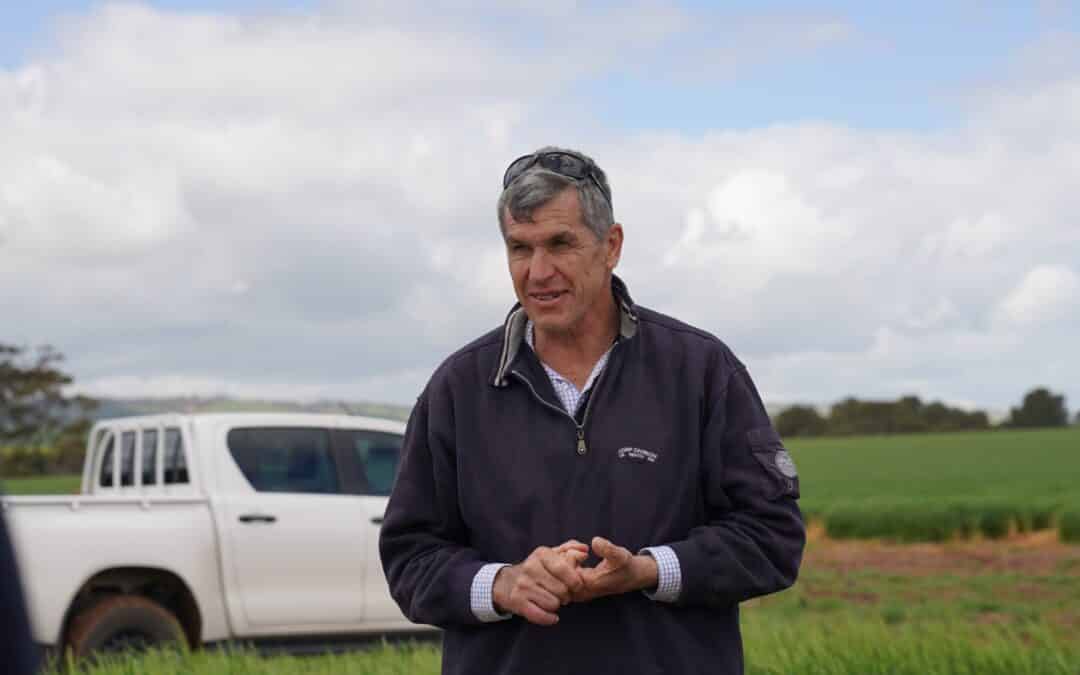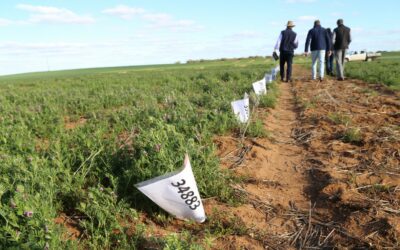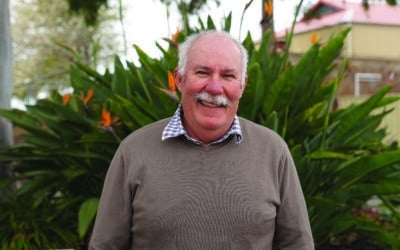Strong grain production has seen an increase in the amount of funding available for grains research in SA, with the South Australian Grain Industry Trust (SAGIT) this week announcing it will invest almost $3 million in 28 new grains research projects starting in 2023.
In addition, a further four projects are expected to receive co-investment funds from the Grains Research and Development Corporation (GRDC) and another four projects will receive co-investment funds from the South Australian Drought Resilience Adoption and Innovation Hub.
SAGIT chair Max Young said the collaborative approach enabled researchers to further expand their projects and provide greater outcomes for SA’s grain growers.
“With additional investment support from GRDC and the SA Drought Hub, we can broaden our research efforts and enhance the new knowledge we deliver on-farm.
“This co-investment model also supports the research community through the injection of additional funds and reduces the risk of research duplication between our organisations.”
SA Drought Hub Director Dr Stephen Lee said partnering with SAGIT feeds directly into the hub’s work to strengthen the drought resilience and preparedness of farms and regional communities.
“Bringing together a wide range of people to develop mutually beneficial solutions is a key focus for the hub,” Dr Lee said.
“Teaming up with SAGIT helps us broaden and strengthen our network even further, with the internship program offering a prime example of this.
“We have also seen strong interest in ways to optimise crop establishment in dry soils and the new SAGIT projects will deliver valuable outcomes for growers in this area.”
Among the projects are several focused on maintaining the state’s excellent market access, for example: improving industry’s response to white grain disorder and fusarium head blight outbreaks while protecting export markets; minimising market access risks in herbicide tolerant pulses; preparing for a pulse protein market; and the appointment of a research officer to look at vetch production, agronomy, breeding and market development.
There is also a continuation of funding into the Frost Learning Centre in the state’s mid-north, and the successful internship programs run through the Hart Field-Site Group and AIR EP.
“We have seen the enormous value of these grains internship programs, and we are committed to supporting the next generation of advisers and researchers,” Mr Young said.
“Investing in the people who will take the industry forward is just as important to the resilience of grain growing as investing in more resilient practices.
“There is clearly a wealth of passion and enthusiasm for agricultural research in SA, and these new projects will help translate that commitment into long-term agronomic, technological and educational benefits for growers.”
SAGIT is funded by a voluntary grower levy of 30 cents per harvested tonne.
The successful projects are:
| Organisation | Project |
|---|---|
| Ag Excellence Alliance | Publication of the 2024 Farm Gross Margin Guide for SA |
| Agricultural Consulting and Research Pty Ltd | Are crop yields limited by iron deficiency on calcareous soils of the Yorke Peninsula |
| Agrilink Agricultural Consultants | Evaluation of agronomic practices for SHO safflower production |
| Agronomy Solutions | Soil salinity thresholds for chickpeas, faba beans and lentils |
| AgXtra | Powdery mildew control in wheat – extension project |
| AgXtra | Genetic and fungicidal control of septoria tritici blotch and stripe rust in wheat |
| AIR EP | Eyre Peninsula internship in applied grains research 2024 |
| Hart Field Site Group | Regional internship in applied grains research |
| Hart Field Site Group | Improving efficacy of glufosinate for annual ryegrass control in canola |
| Mallee Sustainable Farming | Enhancing farmer knowledge of soil function to improve management outcomes |
| MacKillop Farm Management Group | MacKillop Farm Management Group Annual Trial Results Book 2023 – 2025 |
| Mid North High Rainfall Zone | Frost Research and Learning Centre |
| SARDI | SA Crop Variety Sowing Guide publication |
| SARDI | Profitable vetch – agronomy, breeding and market development |
| Trengove Consulting | Using grain protein maps to optimise nitrogen fertiliser to paddock scale nitrogen variability |
| University of Adelaide / SARDI | Colour preservation in faba beans to enhance quality and value |
| University of Adelaide / SARDI | Pairing pulses for improved yield, protein, agronomy, and profit |
| University of Adelaide | Developing new breeding material to stabilise barley yields |
| University of Adelaide | Higher barley yield through improved microbial interactions |
| University of Adelaide | Screening for genetic components of head-retention in barley |
| University of Adelaide / SARDI | Preparing for a pulse protein market – pulse options for expansion areas |
| University of Adelaide | Optimising crop establishment under dry and marginal soil moisture |
| University of Adelaide | Delivery of beneficial organisms through seed coating to improve grain yield |
| University of Adelaide / SARDI | Processing solutions for a novel high-protein food ingredient from vetch |
| University of Adelaide / SARDI | Minimising market access risks in herbicide tolerant pulses |
| University of Adelaide / SARDI | Improving industry response to white grain disorder and fusarium head blight outbreaks while protecting export markets. |
| University of Adelaide / SARDI | Manipulating spike architecture to improve wheat yield |
| University of SA | Pesticide effects on soil microbial functions in contrasting SA soils |
ENDS
For interviews, please contact Bridget Penna, AgCommunicators, 0429 676 413




